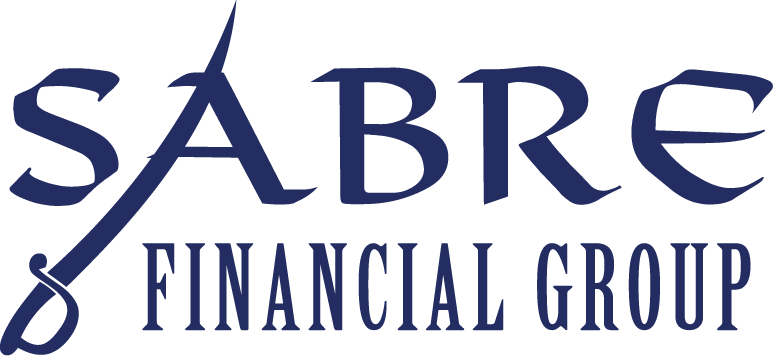
When it comes to business growth strategies, many small businesses think primarily about organic opportunities like increasing marketing efforts, developing new service lines, evaluating new markets, or making improvements to existing systems and operations. All of these methods are important and beneficial to the growth of a small business, but one underutilized growth strategy is growth through acquisition – i.e., buying a small business.
It may seem like mergers and acquisitions (M&A) are strategies used by bigger corporations exclusively because of the level of complexity some of the deals have, but that’s not always the case. Small and middle-market businesses also can reap the benefits of using acquisitions to grow their business exponentially while still maintaining a handle on operations.
Why Small Businesses Should Consider Acquisitions
If you have already identified ways you want your business to grow over the next few years (or you are in the process of doing so), you might consider acquiring one or more businesses in the target markets that you want to develop.
1. Accelerated Revenue Growth
A major benefit of acquiring an existing business is that the business is already established, has existing clients and processes, and has earned its reputation in its market. If you acquire a business that is in your same industry, are able to expand existing market share and gain access to a new customer base, improve your existing operations by leveraging their best practices, and expand product and service line revenues.
2. Expansion into New Geographic or Other Markets
Expanding into a new geographic area or a new industry successfully takes proper planning. You need to understand how that particular customer base makes purchase decisions, you also need to evaluate your current business operations, systems and talent to see if an expansion like that is even possible.
If you are considering expanding into a new geographic area or a new industry through acquisition, it is essential to go through the proper steps to ensure that the business is viable and can help you accomplish your expansion strategy and business goals. The major advantage is that you will be able to maximize the growth that the target company has already achieved, and have a huge head start in the local geographical market or niche the target company has already built.
3. Leveraging Strengths
Lastly, acquisitions provide an opportunity to evaluate areas your business may be lacking in and strategically address those gaps through the acquisition. By leveraging the strengths of the target business, you can enhance service capabilities, address resource shortages, and improve overall operational systems and performance. For example, gaining access to specialized expertise, expanding your product offerings, or strengthening your supply chain can complement or improve your existing operations while also creating cost efficiencies through streamlined processes and reduced redundancies.
Overcoming Common Misconceptions When Buying a Small Business
There are several misconceptions when it comes to acquiring a business; here are a few:
Misconception #1: “I Don’t Have the Cash to Buy a Small Business.”
A common misconception is a business owner must personally have all the cash on hand to buy the business. That’s typically not the case! There are several different options available to finance your acquisition, such as:
- Bank and non-bank loans (SBA loans included)
- Asset purchases and stock purchases
- Owner financing
- Earnouts and forgivable seller notes
We share more details on each of these methods in our blog post on acquisition financing.
Misconception #2: “Buying a Small Business is Too Risky.”
Another misconception is risk. While starting or acquiring a business means accepting a certain amount of risk, the bright side of buying a business as a growth strategy is that you can evaluate a target company throughout the entire M&A (merger and acquisition) process, especially while you are conducting your due diligence. For example, including pre-LOI (letter of intent) due diligence. The more you understand the target company’s financials, existing operations, customer list, existing personnel, and projections; the easier it is to mitigate your risk up-front and determine if this is the right business for you to acquire.
Misconception #3: “Buying a Small Business is Too Complicated.”
The acquisition process can be challenging, but with the right financial planning and analysis team helping you through each step, it can be a positive experience. Experienced financial professionals like M&A advisors, accountants, and attorneys have the experience and ability to provide the insights that can help you make the best decision for your business. The right trusted advisor will have worked with many other business owners looking to acquire businesses and they can pull from that knowledge base to help you navigate the steps with confidence and discover details that are highly relevant to your decision-making process.
How to Get Started
If you’re considering acquiring a business as a growth strategy, but aren’t sure where to start, consider these tips:
- Start Small: Your first acquisition doesn’t have to be a massive deal. Targeting a business of similar size or smaller than your own can help minimize complexity and comfort level.
- Seek Expert Guidance: Engage with M&A advisors, CPAs, and legal experts who specialize in small-business transactions. They can guide you through valuations, negotiations, and legalities. The earlier you do this, the more clarity you can get along the way.
- Leverage Technology: Tools like PipeDrive (a CRM platform) and other deal-management software tools can help you track potential targets, manage due diligence, and streamline communications.M&A firms can also help you develop specific forecasting and modeling scenarios on the target company which can be extremely insightful.
Acquiring a business can be an effective strategy to scale, diversify, and stay competitive in your industry today and in the future. Whether you’re a family-owned business eyeing regional expansion, an entrepreneur looking to diversify, or an established service business looking to expand by purchasing multiple businesses in the same sector (this is typically called a roll-up strategy), consider adding acquisition to your growth toolkit.
Sabre Financial Group Can Help You Through the Acquisition Process
Sabre Financial Group has substantial knowledge and expertise in the small and middle market business segments and has extensive experience in the acquisition process. Our team has worked with hundreds of companies of varying sizes and industries. We have the knowledge and tools to help you with navigating complex issues throughout the acquisition process and are equipped to help you and your businesses make decisions that are in your best interest.
We have relationships with brokers, attorneys, and industry consultants that can help you gain more insight and evaluate the key information effectively in order to limit risk. Whether you have identified a business you want to buy and need help conducting due diligence, or you are at the beginning of the process and need someone to come alongside you, we can help.
Contact us today to schedule a consultation with our team.

